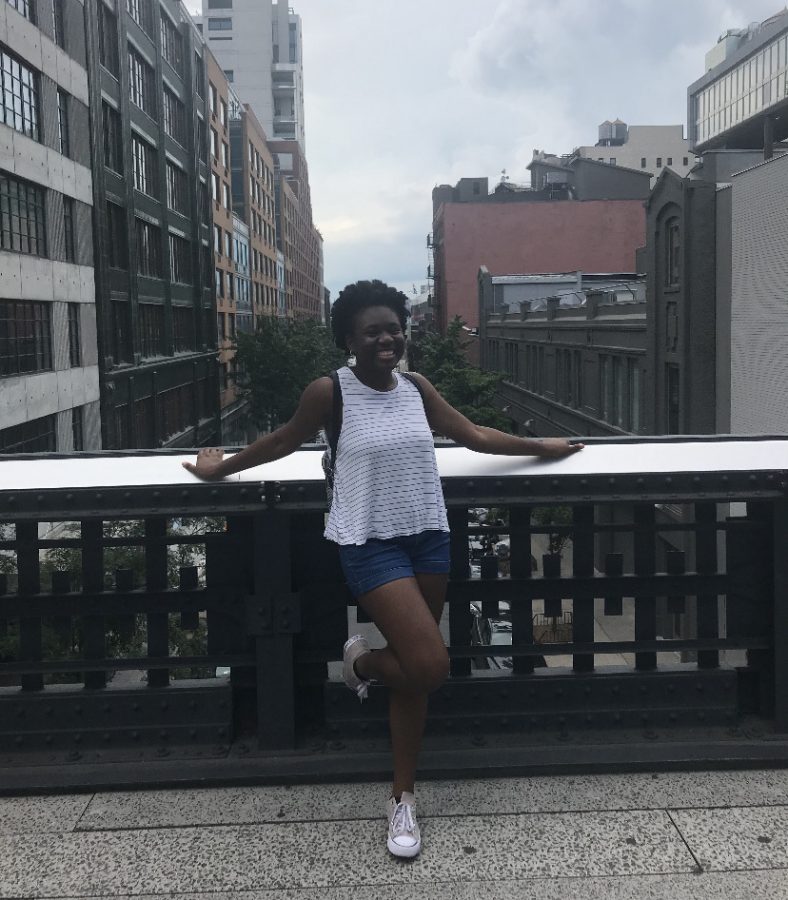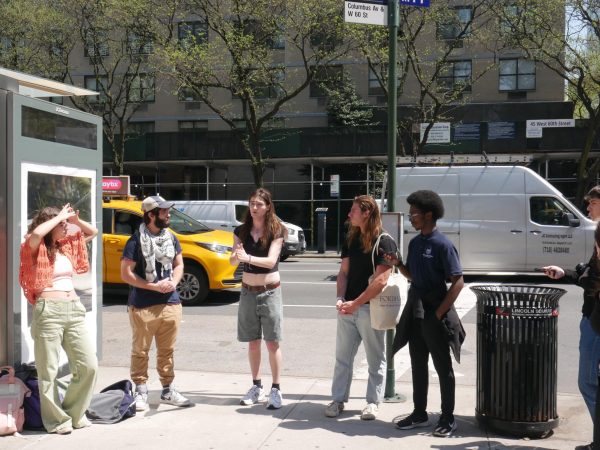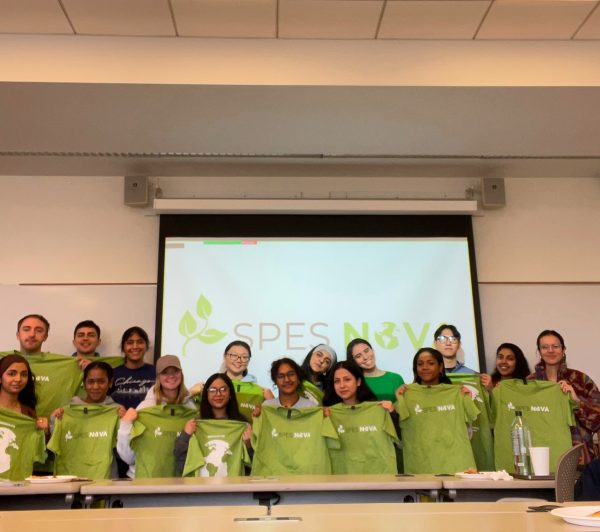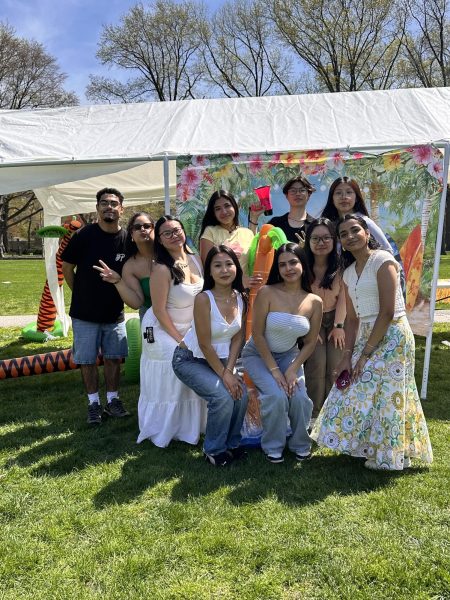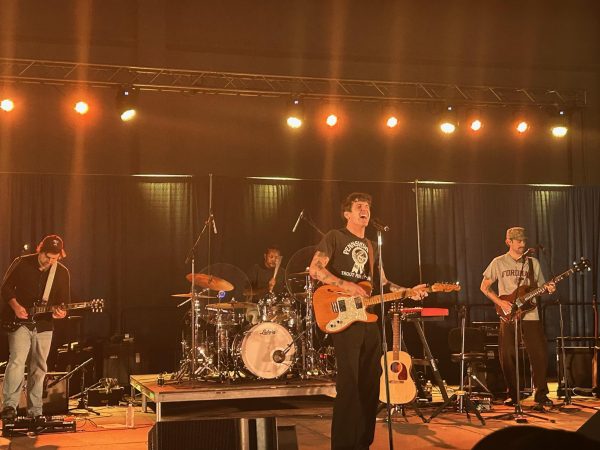International Student Talks Adjusting to the American College Experience
Many Fordham students dream about spending a semester studying abroad, taking in the sights of a faraway city and immersing themselves in a new culture. Almost half of Fordham’s undergraduate students participated in a study abroad program during the 2018-2019 academic year, according to the university’s website.
When the average student thinks about studying abroad, they might imagine visiting Buckingham palace on weekends or touring the Spanish countryside. But sometimes, studying abroad means spending four years going to college in New York City.
At least, that’s the case for the roughly 2,500 international students enrolled as undergraduates at Fordham right now who hail from all over the world.
Ane Omagu, FCRH ’22, had already put in a few years of experience living in a foreign country when she started her freshman year in the fall of 2018. Born and raised in Nigeria, Omagu spent the last two years of her high school education studying in England.
“The school I went to in Nigeria was British and had a British curriculum,” said Omagu. “A lot of students from my school [in Nigeria] went to England for school too.”
That’s where she first found out about Fordham, she explained. “Fordham actually came to my school in England,” said Omagu. “We had a university fair, and there were a bunch of colleges there, both from the U.S. and the U.K.”
Omagu said she wasn’t nervous about moving to the United States for college. Aside from visiting the country several times during her childhood to visit family or attend theater camp, she grew up absorbing American culture through popular art.
“I was so used to seeing U.S. colleges in movies and TV shows,” said Omagu. “That idea of like the ‘traditional American college experience’ — I think that’s part of why I wanted to go to the U.S.”
Omagu said that the flexibility afforded to American college students when it comes to changing majors and experimenting with new subjects was a big reason she chose to study in the United States.
When international students first arrive in New York City to start their first year of college, they all participate in Global Transition, a program similar to the orientation all students receive but more specifically tailored to international students’ needs. As Fordham’s website explains, “During Global Transition, new students will have the opportunity to meet and get to know other international students from all over the world, attend important and helpful information sessions and engage in some fun activities/events.”
Omagu said the program was very beneficial for her when she first arrived at Fordham and served as a “crash course” of what it is like to go to school in America. It also helped her forge connections with other students in the same boat as she was. “I’ve met a lot of my closest friends through that,” she said.
Still, there are a few things Omagu just had to learn for herself. “A huge thing was that I had to catch up on a bunch of U.S. slang,” she explained. Pronunciations of certain words were hard at first too. Omagu joked about how she used to pronounce “Southern” — like “South – ern.”
Omagu — as someone who always went to British schools before Fordham — also uses British spellings for English words. Unfortunately, her classmates and professors sometimes don’t appreciate these small cultural language differences and simply mark her essays wrong, Omagu explained.
For Omagu, the excitement of studying abroad in New York City can’t always overcome the homesickness that comes from being so far from family and friends. Most of all, Omagu misses her mother’s cooking. She also misses the type of yam she eats back home, which is different than the kind typically available in American grocery stores.
“They have it in certain African shops in New York, but it’s so expensive compared to getting it in Nigeria,” said Omagu.
Omagu said she also has had to overcome obstacles in her courses as a history major. Most professors, she explained, assume every history student has extensive background knowledge of American history, but for Omagu and other international students, that simply isn’t always the case. “Everything I knew about American history came from Hamilton,” Omega joked.
That’s not to mention the misconceptions Omagu’s American classmates sometimes have about her background. “Sometimes I’ve had people say things like, ‘Oh, how do you speak English so well?’ And I have to tell them that English is the official language of Nigeria,” said Omagu. “That’s something I wish people knew, just so I wouldn’t get so many ignorant questions.”
Omagu said she has considered staying in the United States after she graduates next spring but explained that the hurdles in place for international students make it difficult to know where she’ll end up. “You have to enter a lottery to get a work visa,” she explained.
That lottery represents just one of the many hoops international students must jump through during their college years to ensure they can travel to and stay in the United States. Getting internships, for example, can be difficult, as international students must fill out extra paperwork to get visa approval to work in the United States. This requires collaboration with the Office for International Services at Fordham, which can sometimes move a little slowly, said Omagu.
Moving out of residence halls when the COVID-19 virus first spread rapidly across New York City last March also proved much more complicated for international students, many of whom had to scramble to find international flights before borders closed and travel restrictions were put in place by governments across the world. “We had like a week,” Omagu recalled. “I was almost shut out of Nigeria.”
Then, for months, international students had to exist on awkward schedules, taking classes scheduled with New York’s time zone in mind. Omagu spent most of 2020 in Nigeria with her family. Despite the six-hour time difference between her home in Lagos and New York City, Omagu said it was nice to be home, especially considering Nigeria’s relatively low case numbers compared to many parts of the United States.
Omagu returned to New York City in January for the first time in months.
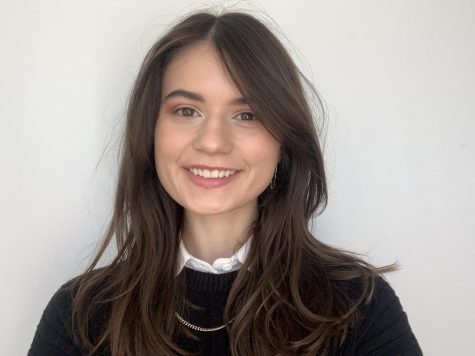
Abbey Delk is a junior from Wheeling, West Virginia, double majoring in English and journalism and minoring in film & television. Her career at the...



































































































































































































